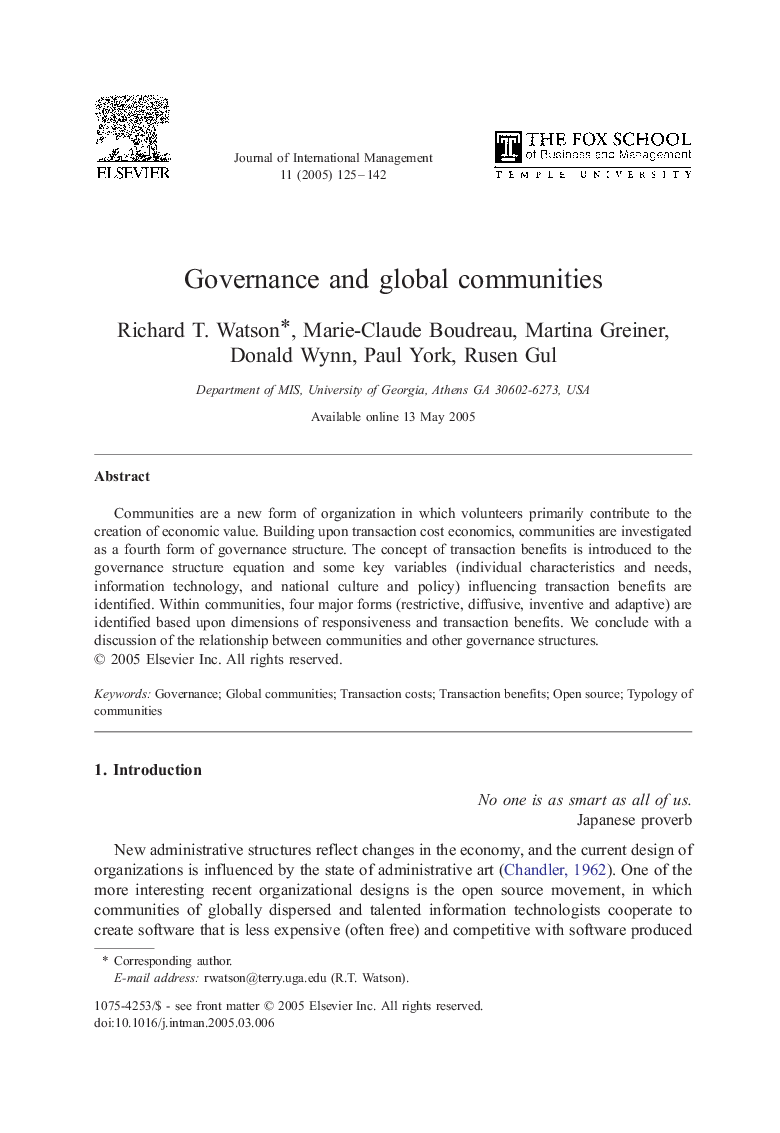| Article ID | Journal | Published Year | Pages | File Type |
|---|---|---|---|---|
| 10494255 | Journal of International Management | 2005 | 18 Pages |
Abstract
Communities are a new form of organization in which volunteers primarily contribute to the creation of economic value. Building upon transaction cost economics, communities are investigated as a fourth form of governance structure. The concept of transaction benefits is introduced to the governance structure equation and some key variables (individual characteristics and needs, information technology, and national culture and policy) influencing transaction benefits are identified. Within communities, four major forms (restrictive, diffusive, inventive and adaptive) are identified based upon dimensions of responsiveness and transaction benefits. We conclude with a discussion of the relationship between communities and other governance structures.
Related Topics
Social Sciences and Humanities
Business, Management and Accounting
Business and International Management
Authors
Richard T. Watson, Marie-Claude Boudreau, Martina Greiner, Donald Wynn, Paul York, Rusen Gul,
